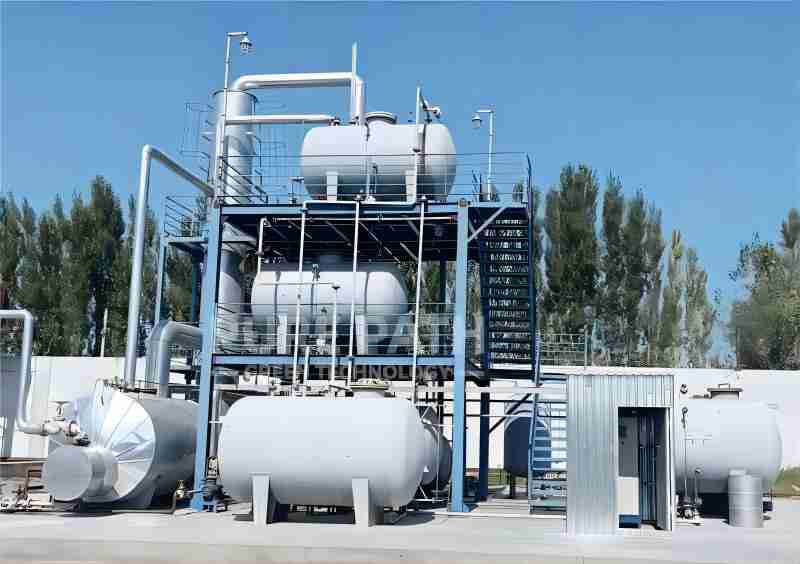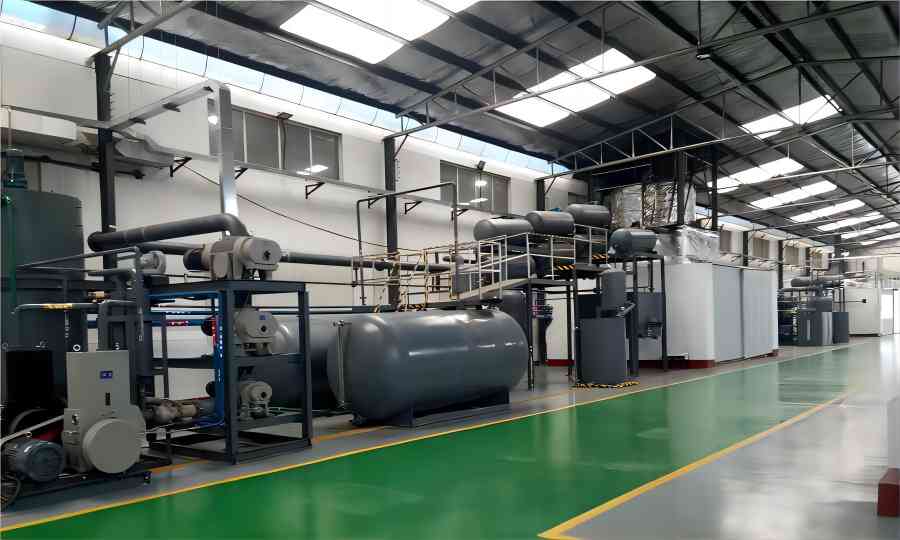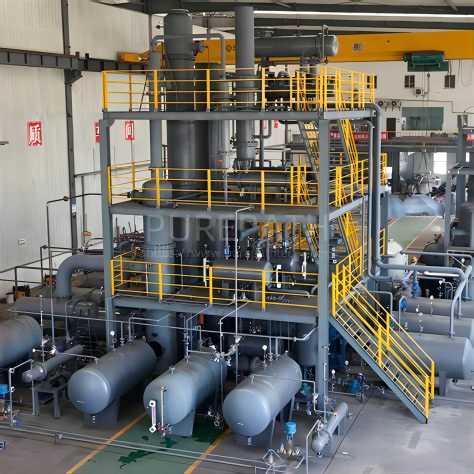What Type of Used Oil Can Be Converted into Base Oil?
Base oil is a crucial component of lubricants used in various industrial and consumer applications. These lubricants play a vital role in reducing friction, wear, and heat generation in machinery. Traditionally, base oil has been derived from crude oil, a non-renewable resource. However, with increasing environmental concerns and a growing focus on sustainability, recycling used oil to create new base oil has become a viable alternative.
This article explores the types of used oil that can be converted back into base oil, highlighting the environmental benefits of this process. It also delves into the factors that affect the suitability of used oil for recycling and provides a basic overview of the conversion process.

Importance of Used Oil Recycling
Used oil, generated from car engines, industrial machinery, and other sources, poses a significant environmental threat if not disposed of properly. Improper disposal can lead to contamination of soil and water resources. Recycling used oil offers a sustainable solution by minimizing reliance on virgin crude oil and diverting waste from landfills. The used oil re-refining process removes contaminants and impurities from used oil, transforming it back into a high-quality base oil suitable for lubricant production.
Types of Used Oil Suitable for Base Oil Conversion
Not all used oil is created equal. The good news is that a wide range of used oils can be recycled and converted back into high-quality base oil. Here’s a breakdown of the two main categories:
A. Mineral-based Used Oil:
- Used motor oil: This is the most common type of used oil generated by cars, trucks, and other gasoline or diesel-powered vehicles. After use, motor oil accumulates contaminants and loses its lubricating properties. However, proper recycling allows it to be transformed back into a valuable base stock.
- Used hydraulic oil: Used in hydraulic systems of machinery like construction equipment and machine tools, hydraulic oil plays a critical role in transferring power. Recycling used hydraulic oil allows for the recovery of valuable base oil while minimizing environmental impact.
- Used industrial lubricants: A diverse category, used industrial lubricants encompass various oils used in industrial settings. Examples include gear oils for gearboxes, compressor oils for air compressors, and turbine oils for industrial turbines. Many of these lubricants can be effectively recycled into base oil.
B. Synthetic-based Used Oil
Synthetic lubricants are laboratory-designed oils offering superior performance compared to mineral-based oils. They can withstand higher temperatures, have better resistance to oxidation, and offer improved fuel efficiency. While synthetic oils generally offer longer lifespans, they can still be recycled when their useful life is over.
- Used synthetic engine oil: Similar to used motor oil, used synthetic engine oil can be recycled into base oil after use. However, the recycling process may differ slightly to account for the unique chemical composition of synthetic oils.
- Other recyclable synthetic oils: Several other types of synthetic lubricants used in transmissions, hydraulic systems, and gearboxes can also be recycled into base oil. These include used synthetic transmission oil, used synthetic hydraulic oil, and used synthetic gear oil.
It’s important to note that the recyclability of synthetic oil may vary depending on the specific type and its additives. Some synthetic oils may require additional processing steps or may not be suitable for base oil production due to their composition.

Factors Affecting the Suitability of Used Oil for Recycling
While a wide range of used oils can be recycled, certain factors can affect their suitability for conversion into base oil. Here are two key considerations:
1. Contamination: Used oil can become contaminated with various substances during its service life. Common contaminants include water, coolant, and fuel. Excessive levels of these contaminants can make it difficult or uneconomical to purify the used oil for base oil production.
2. Degree of Oil Degradation: Over time, used oil degrades due to factors like heat, oxidation, and exposure to contaminants. This degradation can alter its chemical properties and make it less suitable for conversion into high-quality base oil.
The Process of Converting Used Oil into Base Oil
The process of converting used oil into base oil involves several steps:
- Collection and Storage: Used oil is collected from various sources, including automotive service centers, industrial facilities, and quick-change oil businesses. It’s crucial to store used oil properly in designated containers to prevent leaks and spills.
- Pre-processing: Collected used oil undergoes pre-processing to remove large solids and impurities like metal shavings or dirt. This may involve filtration or settling techniques.
- Dehydration: Water contamination is a significant concern in used oil recycling. Dehydration removes water using methods like heating or vacuum distillation.
- Purification: The core step of the process involves removing various contaminants and degradation products from the used oil. Several techniques can be employed, including solvent extraction, distillation, and hydro finishing. These processes aim to recover high-quality base oil with desired properties.
- Additization: After purification, the base oil may be blended with specific additives to enhance its performance characteristics and cater to the needs of different applications. These additives can improve viscosity, oxidation resistance, and anti-wear properties.
- Quality Control: Throughout the recycling process, strict quality control measures are implemented to ensure the produced base oil meets the required specifications for viscosity, purity, and other critical properties. This ensures the re-refined base oil performs as effectively as virgin base oil derived from crude oil.
- Finished Product: The final product is high-quality re-refined base oil, ready to be blended with additives and used in the formulation of new lubricants. This re-refined oil offers a sustainable alternative to virgin base oil, reducing reliance on fossil fuels and promoting a circular economy for lubricants.

Conclusion
Recycling used oil offers a sustainable solution for managing a valuable resource and reducing our reliance on virgin crude oil. A wide variety of used oils, including mineral-based and some synthetic oils, can be effectively converted into high-quality base oils. While factors like contamination and degradation can affect the suitability of used oil for recycling, advancements in processing techniques have made it possible to recover valuable base stock from a broad range of used lubricants.
By choosing re-refined lubricants made with recycled base oil, consumers can contribute to a more sustainable future. The used oil recycling industry plays a vital role in protecting our environment and conserving natural resources.







